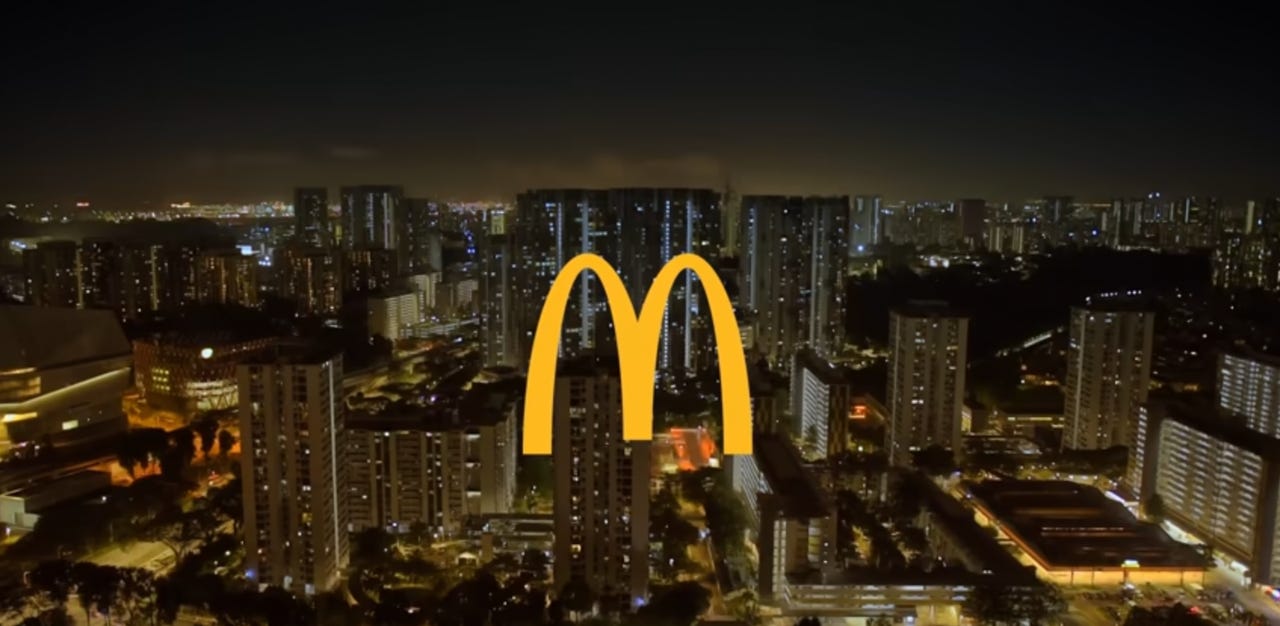McDonald's customers just got a sliver of hope in a slurry of despair


A step toward consistency?
It's one of the more maddening things in the world.
more Technically Incorrect
More maddening than a cyclist who blows through a red light. More maddening than watermelon that tastes only of water. Yes, it's even more maddening than watching any sort of political-news TV.
For this is something that's been happening all across America for far too long.
You walk into a McDonald's and the ice cream machine is kaput. Lifeless. Nonfunctional. Or just plain dirty and no one wants to clean it.
The result? You don't get a McFlurry.
Also: McDonald's just threw technology out the window (well, its customers did)
As an occasional McDonald's customer, I've been following this madness for some time. Thanks to a site called McBroken, I just learned that, as I write, 24.49% of the McDonald's ice cream machines in New York aren't working.
That's (near enough) a quarter. That's simply terrible business.
Yet it's a business that's caused great consternation, partly because too many people fear McDonald's has never done enough about it.
In March, I wrote about a lawsuit in which a company called Kytch was suing McDonald's because it doesn't think the burger chain is doing enough to ensure that customers can get an ice cream when they want one.
In essence, Kytch thinks it's got a simple, inexpensive solution -- called the Kytch Solution -- to make sure the ice cream machines work efficiently.
The technical explanation, courtesy of Kytch's lawyers: "The Kytch Solution retrieves data from McDonald's soft-serve machines, displays it on Kytch's user-friendly interface, and adjusts settings hidden deep in the machines, which can prevent outages before the machines can detect an error."
It borders on the blissful, doesn't it?
Also: McDonald's just gave (some) customers something brilliant
Kytch also filed a restraining order against the Taylor Company, which actually makes and maintains the machines. Kytch claims that Taylor had created a device that Kytch deems rather similar to its own, so much so that its trade secrets had allegedly been pilfered.
Here's the sliver of hope. A judge has now, Motherboard reports, allowed Kytch's restraining order -- filed a year ago -- to go ahead.
Can I promise that now franchisees will feel free to use more Kytch devices, so that you can more surely enjoy ices? No, I can't.
I can say that Kytch's co-founder, Jeremy O'Sullivan, told Motherboard: "This is an important milestone because we now have the opportunity to pursue justice beyond the egregious misappropriation of our trade secrets."
Worse, says Kytch, Taylor allegedly went around saying the Kytch Solution wasn't safe.
I worry about McDonald's countenance in all this. It seems to have allowed this situation to fester for longer than a Big Mac that fell into a sofa gap in a frat house.
Why wouldn't you want your machines to be more efficient? Why wouldn't you want to find the best technological solutions to ensure that?
How, in fact, has McDonald's management tolerated this maddening situation for so long? There's an actual site that's monitoring and mocking your incompetence and you let it go on for so long?
Then, there are all your constantly frustrated customers, forced to seek inferior pleasures, such as frozen yogurt.
At the time of Kytch's lawsuit against McDonald's, the latter declared: "McDonald's owes it to our customers, crew, and franchisees to maintain our rigorous safety standards and work with fully vetted suppliers in that pursuit."
I feel sure you'll interpret every word of that.
Of course, the law tends to move very slowly. This is something of which tech companies have taken great advantage over many years.
But if the Kytch solution really is so simple and can offer greater efficiency, can't McDonald's, Taylor and Kytch all get along, rather than sounding like a large law firm?
All customers want is an McFlurry when they crave one.
You'd think this wouldn't be too much to ask. You'd think this might even be profitable for McDonald's.